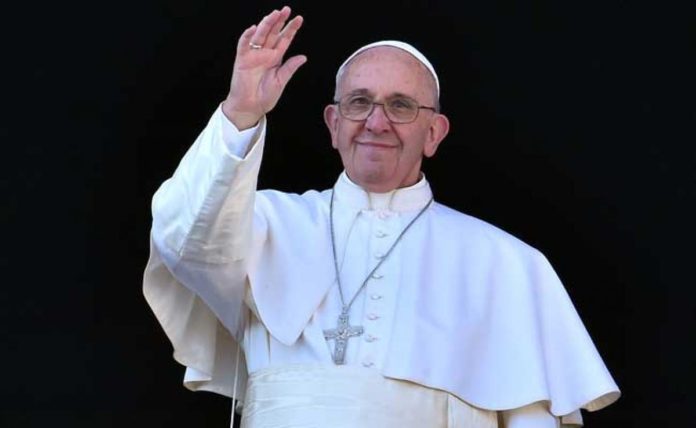Pope Francis spoke about the human tendency to focus on the faults of others, rather than our own flaws and the harmful ways we often speak to one another on his Sunday reflection.
The Pope reflected on Sunday’s Gospel, in which Jesus asks the question: “Why do you notice the splinter in your brother’s eye, but do not perceive the wooden beam in your own?” (Luke 6:41.)
Here the Lord is first calling his followers to “clean up our gaze,” the Pope said.
“What Jesus says is true: We always find reasons for blaming others and justifying ourselves. And very often we complain about things that are wrong in society, in the Church, in the world, without first questioning ourselves and without making an effort to change ourselves first,” he added.
“Every fruitful, positive change must begin from ourselves. Otherwise,” he added, “there will be no change.”
Adjusting our outlook, we emulate God Himself, the Holy Father said.
“If instead, we acknowledge our own mistakes and our own flaws, the door of mercy opens up to us. And after looking within ourselves, Jesus invites us to look at others as he does — this is the secret, to look at others as he does — looking first not at evil, but at goodness,” Pope Francis said.
“God looks at us in this way: He does not see irredeemable errors in us, but children who make mistakes. It is a change in outlook: He does not concentrate on the mistakes, but on the children who make mistakes.
“God always distinguishes the person from his errors. He always saves the person. He always believes in the person and is always ready to forgive errors. We know that God always forgives. And he invites us to do likewise: not to look for evil in others, but good.”
Secondly, the pope went on, the Gospel reminds us to take care about the things we say. As Jesus observes, “from the fullness of the heart the mouth speaks” (Luke 6:45.)
“It is true, from the way a person speaks, you can tell straight away what is in their heart. The words we use say who we are,” the pope observed.
“At times, though, we pay scarce attention to our words and we use them superficially. But words carry weight: They enable us to express thoughts and feelings, to give voice to the fears we have and the plans we intend to realize, to bless God and others,” he went on.
At the same time, the words we use can also “feed prejudices, raise barriers, harm and even destroy; we can destroy our brothers with language,” the Pope said.



